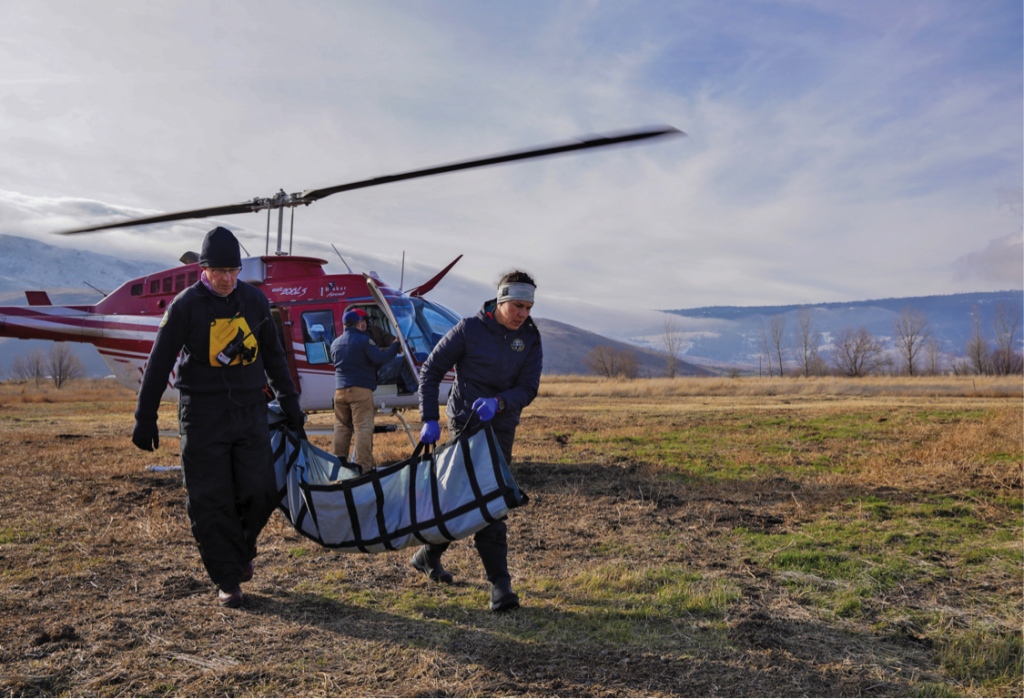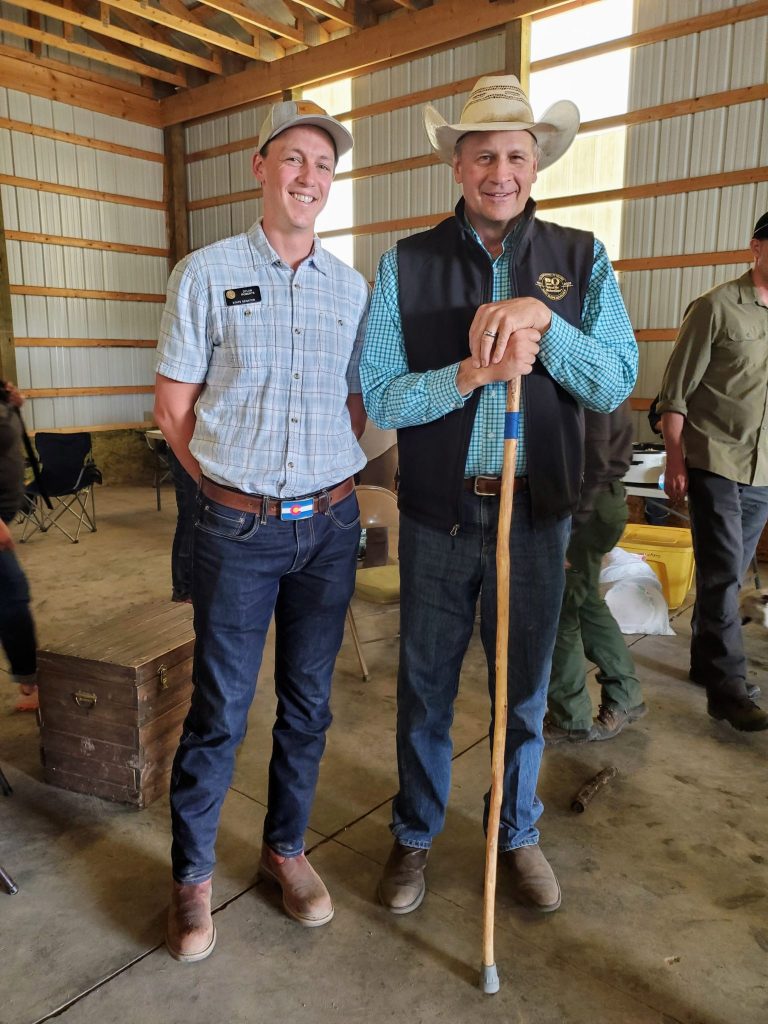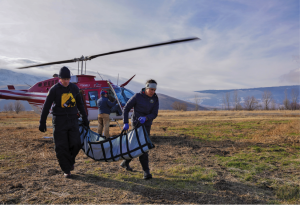Colorado lawmakers propose pausing funding for wolf reintroduction amid state budget crisis
The bill will be introduced during the special session starting on Thursday, Aug. 21

Colorado Parks and Wildlife/Courtesy Photo
Editor’s note: A previous version of this story inaccurately reported that the bill proposes withholding the entire allocation for the wolf program in 2025-26. It proposes reducing the $2.1 million general fund allocation by $264,268.
Colorado lawmakers announced legislation on Tuesday that would pause wolf reintroduction as they seek ways to address the state’s budget shortfall caused by congressional Republicans’ federal tax law.
The bill — which proposes withholding $264,268 of the $2.1 million allocated in the 2025-26 budget for the wolf program — will be introduced by a bipartisan group of lawmakers during the special session starting on Thursday, Aug. 21. The bill also prohibits Colorado Parks and Wildlife from using the dollars for acquiring or reintroducing wolves in the upcoming fiscal year.
“This bill is the right thing to do given our state’s severe financial challenges that threaten the pocketbooks and health insurance costs of hardworking Coloradans,” said Sen. Dylan Roberts, a Frisco Democrat, in a news release. “Now is not the time to be spending precious taxpayer dollars on new wolves — let’s focus on lowering costs for Coloradans and balancing our budget.”
Roberts is introducing the bill alongside Sen. Marc Catlin, a Montrose Republican, and Reps. Meghan Lukens, a Steamboat Springs Democrat, and Matthew Martinez, a Monte Vista Democrat. The bill has additional support from bipartisan lawmakers, according to the release.
The proposed $264,268 reduction accounts for approximately 0.033% of the $780 million deficit lawmakers will seek to close from the 2025-26 budget as they head back Thursday for the special session. The session was called to close the budget shortfall caused by the extension and expansion of corporate tax cuts passed in H.R. 1, previously designated the “one, big beautiful bill.”
Lawmakers will also seek to address a significant jump in health insurance premiums — up to 38% on the Western Slope — after Congress failed to extend subsidies created under the Biden administration.
“Pressing pause on future releases allows us to manage existing wolves effectively and focus on what matters most: lowering costs, protecting livelihoods, and making every taxpayer dollar count,” Lukens said in the news release. “Redirecting these limited resources will help us invest in critical priorities like making health insurance more affordable for hardworking Coloradans.”
Colorado is two years into its wolf reintroduction, which was mandated by a ballot measure narrowly passed by voters in 2020. Colorado Parks and Wildlife’s wolf management plan recommends the release of 30 to 50 wolves over three to five years to create a self-sustaining population of wolves. So far, it has released a total of 25 wolves in the first two years of releases. Parks and Wildlife has reported that it has begun planning for a third release season this winter.
The 2025-26 budget passed by Colorado lawmakers earlier this year included $2.1 million allocated from the general fund to support the wolf program. The allocation came with a caveat in the form of a footnote, which threatened a pause in future general fund dollars should Parks and Wildlife spend money on future wolf reintroductions before more preventative measures were implemented to prevent conflict between wolves and livestock.
State lawmakers created a separate gray wolf depredation fund in 2023 that provides a dedicated source to pay producers for the loss of livestock or working animals by wolves. In the first year of reintroduction, 2023-24, the fund received a $175,000 transfer from the state general fund and is set to receive $350,000 in each subsequent year.

In the news release, lawmakers reported that the program cost the state nearly $3.5 million in the past fiscal year, including escalating costs from reimbursement of rancher losses from wolves.
The new bill would reallocate the $264,268, “originally appropriated for the procurement and relocation of new wolves to Colorado in late 2025 or early 2026,” according to the news release and bill text.
The proposal would reallocate the funding for one year to Colorado’s Health Insurance Affordability Enterprise, which aims to lower health insurance premiums through efforts like the state’s reinsurance program and OmniSalud.
While it prohibits Colorado Parks and Wildlife from spending these funds on acquiring and reintroducing wolves in the upcoming fiscal year, the bill text states that the remaining appropriated funds can be used to prevent and resolve conflict between livestock and wolves and to compensate ranchers for their losses.
“Pressing pause on future releases gives the state the space to fix what isn’t working, fully fund landowner support, and carefully steward scarce dollars during a budget crunch,” Caitlin said in the news release. “That’s the responsible way to honor the will of the voters while recognizing the realities on the range. This bill doesn’t end reintroduction, it ensures CPW can repair its programs while we work to stabilize the state’s budget.”
This story will be updated.
Stranded, injured climber rescued on Capitol Peak
Mountain Rescue Aspen has successfully rescued a climber on Capitol Peak after they were reported “overdue” by the other member of their party.









